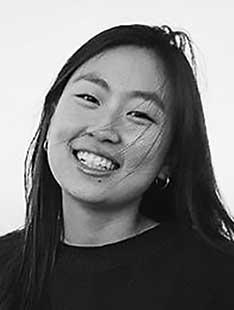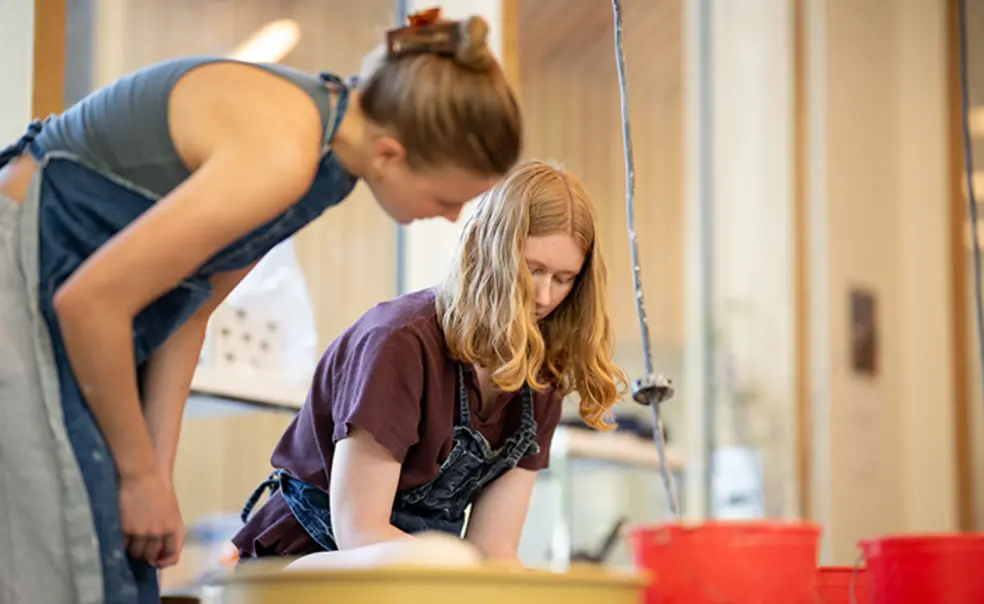New College West Ceramics Studio Offers Creative Space for Students

The studio — a bright, open space with plenty of natural light — opened to students in the spring of 2023. It is a significant upgrade from its previous home in the basement of the now-demolished First College.
Studio manager Debbie Reichard, who has a master’s in ceramics and previously worked at the First College ceramics studio, said the new studio had been in the works for nearly five years. She was involved with the initial planning in 2019 and attended meetings with New College West staff and architects, examining blueprints in person and, later, over Zoom. Despite pandemic-related delays to planning and construction, their visions for the new studio were finally realized last spring.
Now, a year later, the space is rarely empty. The studio hosts approximately 13 events per week, ranging from wheel throwing and hand building workshops to zee group study breaks. Though capacity is limited by space and the number of wheels, students can sign up for events online.
Many of the studio’s day-to-day operations are managed by studio associates, students hired to lead workshops and help maintain the space. Bridgette Schafer ’24 started working in the studio in 2019, at First College. She came in without any experience in ceramics but said the student staff there taught her everything she knows. In the spring, her last semester at Princeton, she spent her Friday nights teaching workshops to students, many of whom are also coming to ceramics for the first time.
“I’ve encountered a few people every year who come in and are like, ‘I’ve never been here before but I’ve always wanted to try,’ and then I start seeing them all the time,” she said. “I think seeing people with a passion who really dedicate themselves to learning is super inspiring.”
Students appreciate the space and the encouraging environment fostered by the studio and its associates. Since it’s all students, “it’s very informal,” said Irene Kim ’25. “You don’t need to make anything — you can just come in to practice, which is nice.” Students also have the opportunity to work and learn alongside others, supporting them in the process.
“The environment in the studio is just so friendly, welcoming, and energetic each night,” said Anna Prilutsky ’24. “It’s also very supportive, because you get to see how [everyone] consistently progresses over time.”
Prilutsky is in the studio nearly every week, sometimes for multiple nights in a row. As a senior, she wants to take advantage of the studio and its resources, which won’t be as readily available (or free) when she leaves Princeton. Studio subscriptions in New York, where Prilutsky will be moving after graduation, can cost $300 a month, in addition to clay costs, and often have long waitlists.
“Ceramics is super inaccessible in the real world,” said Kyung Eun Lee ’25, a studio associate, which makes her appreciate the resources available to students. Not only does it allow for students to create without pressure, but it also brings in students from all walks of campus.
Paige Walworth ’26, a studio associate, said workshops can be “surprisingly social” and are a great opportunity to meet new people.
“I love having people walk in … excited to show off their piece that they made, and just talk to everyone,” she said. “It’s a very small but very tight-knit community.”










No responses yet